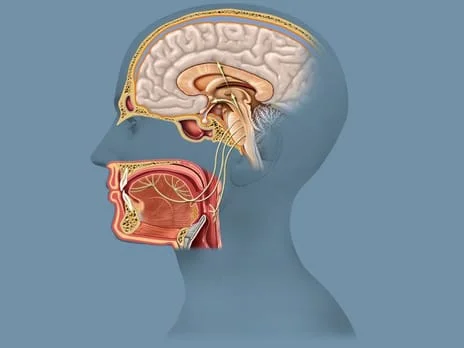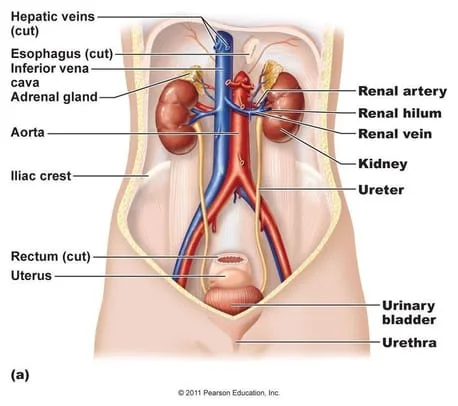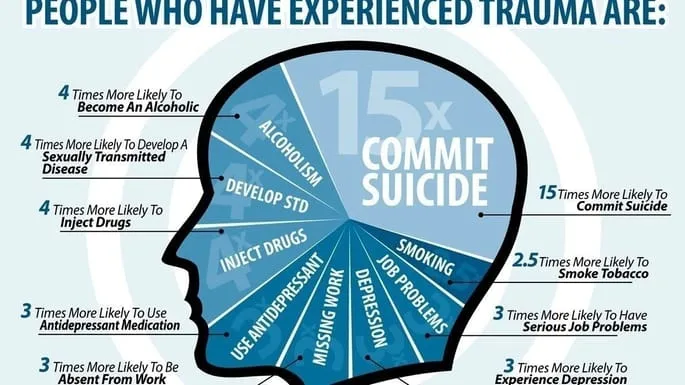My understanding of trauma (as one who is not a Medical Doctor) is as follows. Your senses such as sight, smell, sound, taste, and even certain energies such as feeling someone be angry around you, for example, can all be collected and stored in our mind. Our brain acts like a vast filing cabinet which contains remnants of our life's history.

With trauma, however, those files may sometimes be placed in front others. Our collective senses - as filtered by the millisecond by our mind - may determine that there is enough evidence to trigger some level fight, flight, or freeze. This happens outside of one's will; autopilot.
Fight, flight, or freeze can originally be triggered by extreme danger (physical, sexual, emotional), the witnessing of violence and abuse, experiencing chronic abuse, neglect, or humiliation. This list of traumatic experiences is impossibly vast.
Eventually, one's nervous system may tend to get stuck in the fight, flight, or freeze mode to one degree or another. And, your body may determine that certain situations, people, sounds, energies, etc. are threatening which causes stress hormones to be released into your blood.
For example, in the torso cutaway you can see on top of the kidneys there are cone-shaped things. Those are adrenal glands. Your mind/senses can instantaneously send a signal to them to release adrenaline if it determines that you may need super-human strength and reaction times while under duress.

However, this is a poor design. Many who have been traumatized are plagued with sort of overactive adrenal glands. He or she may constantly be plagued with high levels of stress hormones throughout his or her day(s).
This can cause problems such as: irritability; insomnia; failed relationships; failed occupations and work lives; unhappiness; feeling lost and isolated; and the list goes on. The fact that you are trapped in this archaic entity known as the human body is not your fault. I believe that it's better to learn what makes you tick. Understand why you are the way you are in present form to avoid blaming yourself for something that was done to you. You may see a reflection of self-forgiveness as you look into a mirror, instead.
For example, this little Yorkie used to hate car rides (as pictured here). Historically for her, car rides meant very fearful and powerless experiences, such as going to get groomed or going to the Vet's. She used to pant, be on high alert, and was near terrified. The fear caused anxiety.
We may not be able to understand her perspective because we have not had her same experiences - It's the same with humans. Her nervous system deemed car travel as being filled with risk. Also, her nervous system's survival mechanism signaled that getting groomed or going to the Vet's were highly risky propositions. We also never knew if her nervous system, in these instances, related back to her getting her tail cropped as a puppy.
TRAUMA BONDING (click here)

Stockholm Syndrome: "Stockholm syndrome is a psychological response. It occurs when hostages or abuse victims bond with their captors or abusers. This psychological connection develops over the course of the days, weeks, months, or even years of captivity or abuse." https://www.healthline.com/health/mental-health/stockholm-syndrome
Our societal system in general can be a form of trauma (ex. - socioeconomic immobility, racial/cultural divide, authoritarianism). We all have in common basic mysteries regarding our very existence: How did we get here? Why are we here? What happens to us when we die?
Our ignorance is exploited by powerful entities which control the narrative for the masses. Societal pressures and confines can act as a base-layer of trauma. A great example of this are the exploits detailed in Orwell's book, "1984".
The programable human; enemies to critical thinking:
Normalcy Bias - (Scribbr) is the tendency to underestimate the likelihood or impact of a negative event. Normalcy bias prevents us from understanding the possibility or the seriousness of a crisis or a natural disaster.
Confirmation Bias - (Britannica) people’s tendency to process information by looking for, or interpreting, information that is consistent with their existing beliefs. This biased approach to decision making is largely unintentional, and it results in a person ignoring information that is inconsistent with their beliefs. These beliefs can include a person’s expectations in a given situation and their predictions about a particular outcome. People are especially likely to process information to support their own beliefs when an issue is highly important or self-relevant.
Cognitive Dissonance - (Merriman-Webster) psychological conflict resulting from simultaneously held incongruous beliefs and attitudes (as a fondness for smoking and a belief that it is harmful)
Gaslighting - (Merriman-Webster) psychological manipulation of a person usually over an extended period of time that causes the victim to question the validity of their own thoughts, perception of reality, or memories and typically leads to confusion, loss of confidence and self-esteem, uncertainty of one's emotional or mental stability, and a dependency on the perpetrator.
Brainwash - (Merriman-Webster) a forcible indoctrination to induce someone to give up basic political, social, or religious beliefs and attitudes and to accept contrasting regimented ideas, or, persuasion by propaganda or salesmanship.
Herd Mentality - (Merriman-Webster) the tendency of the people in a group to think and behave in ways that conform with others in the group rather than as individuals.
Trauma Based Mind Control - Trauma-based mind control programming can be defined as systematic torture that blocks the victim’s capacity for conscious processing (through pain, terror, drugs, illusion, sensory deprivation, sensory over-stimulation, oxygen deprivation, cold, heat, spinning, brain stimulation, and often, near-death), and then employs suggestion and/or classical and operant conditioning (consistent with well-established behavioral modification principles) to implant thoughts, directives, and perceptions in the unconscious mind, often in newly-formed trauma-induced dissociated identities, that force the victim to do, feel, think, or perceive things for the purposes of the programmer. The objective is for the victim to follow directives with no conscious awareness, including execution of acts in clear violation of the victim’s moral principles, spiritual convictions, and volition. Installation of mind control programming relies on the victim’s capacity to dissociate, which permits the creation of new walled-off personalities to “hold” and “hide” programming. — Ellen P. Lacter, Ph.D., The Relationship Between Mind Control Programming and Ritual Abuse.
Dunning-Kruger effect - (Britannica) in psychology, a cognitive bias whereby people with limited knowledge or competence in a given intellectual or social domain greatly overestimate their own knowledge or competence in that domain relative to objective criteria or to the performance of their peers or of people in general.
Stockholm Syndrome - (Britannica) psychological response wherein a captive begins to identify closely with his or her captors, as well as with their agenda and demands.
“It’s no measure of health to be well adjusted to a profoundly sick society.”- J. Krishnamurti
Below are movies from both past and present which help exemplify the “predictive programming” theory. Some of the movies from the past now appear prophetic (as with the previously mentioned "1984" work), by way of the theoretical technique known as "Predictive Programing" (or, shifting the "Overton window"). This is when people are more willing to accept unfavorable changes because their senses have been inundated with imagery of said "changes" over the years. Things become acceptable parts of our collective consciousness before they reach reality.
Brave New World (1980)
Invasion of the Body Snatchers (1956)
Upgrade (2018)
Outbreak (1995)
28 Days Later (2002)
Hunger Games (2012)
Minority Report (2002)
Equilibrium (2002)
Robocop (1987)
Brazil (1985)
Idiocracy (2006)
12 Monkeys (1995)
Gattaca (1997)
Looper (2012)
Sorry to Bother you (2018)
Logan's Run (1976)
Soylent Green (1973)
The Truman Show (1998)
Her (2013)
Ex-Machina (2014)
Office Space (1999)
Eraserhead (1977)
The Outsiders (1983)
The Assistant (2020)
Wizard of Oz (1939)
2001: A Space Odyssey (1970)
Two-Minute Warning (1976)
"The perfect dictatorship would have the appearance of a democracy, but would basically be a prison without walls in which the prisoners would not even dream of escaping. It would essentially be a system of slavery where, through consumption and entertainment, the slaves would love their servitude."--Aldous Huxley





